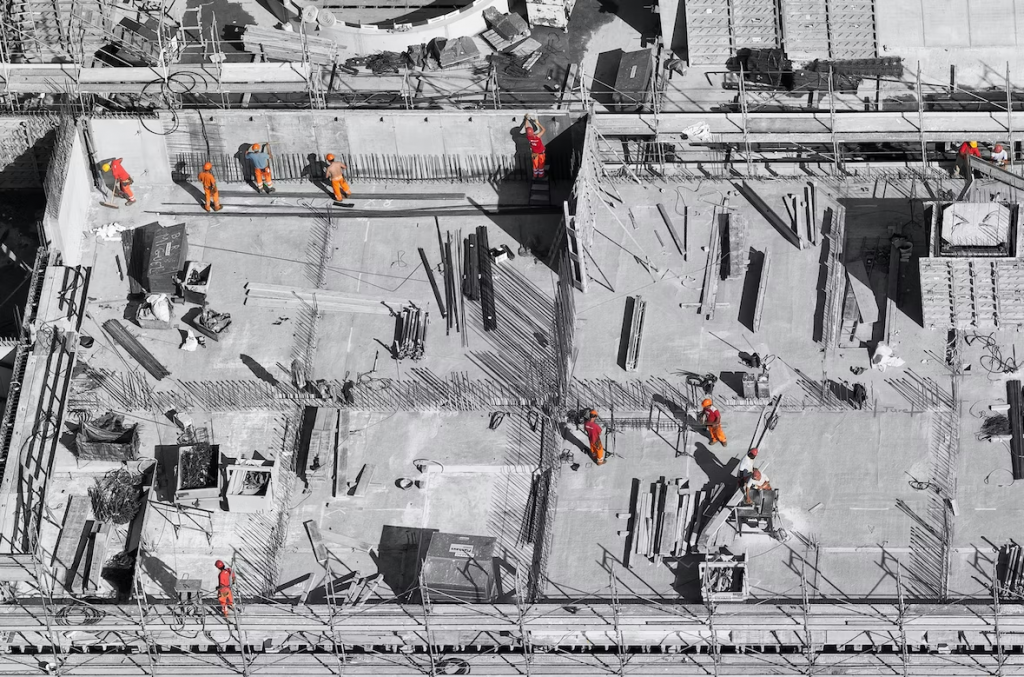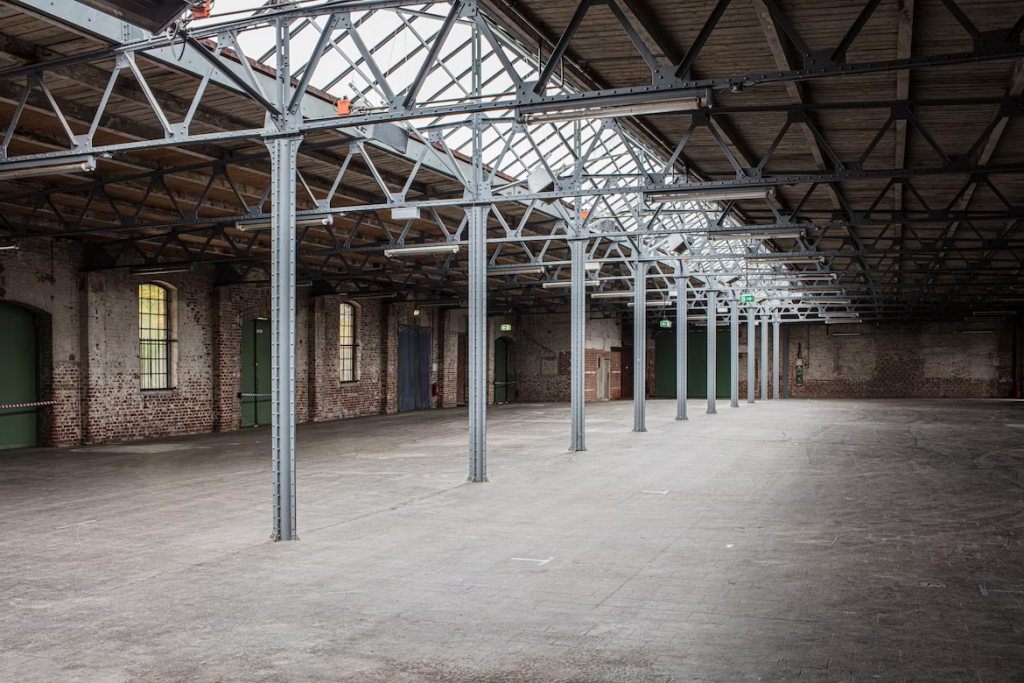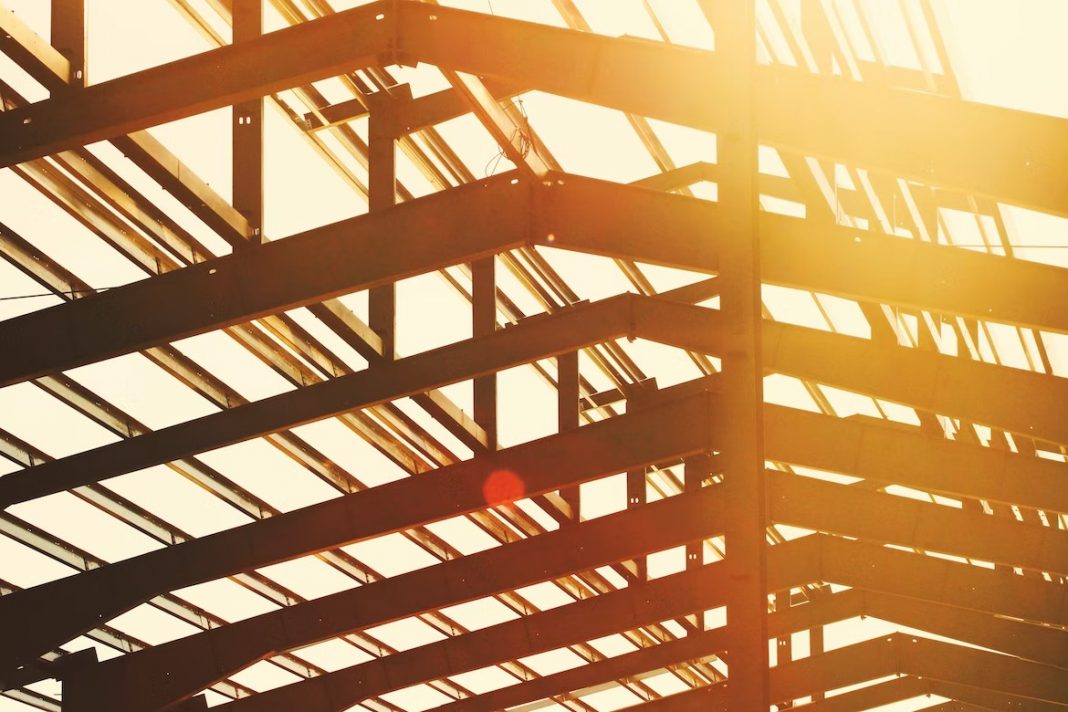There are two trends that really stand out in the industrial construction sector in 2023. One is the need for sustainable, energy efficient structures. The other is the insatiable demand for more warehouse space.
It can be hard to guarantee sustainability when there is pressure to get a building up fast. However, choosing the right materials can go a long way toward helping in this regard. From designing a food manufacturing facility to an ecommerce distribution center, keep reading for 4 sustainable building materials for industrial warehouses worldwide!
Polyiso Insulation
There is no denying the importance of quality insulation in sustainable construction. Some ways that insulation can make a building more sustainable include:
- Increased R-value of the structure, helping it withstand temperature changes due to ambient conditions
- A more airtight building envelope that does not harbor thermal bridges and unwanted air transfer
- An additional moisture, fire, and pest barrier that can keep surface materials in better condition
Most commercial facilities focus on xps vs eps during the insulation phase of construction. EPS and XPS are both thermoplastics known for their low thermal conductivity. XPS is made via an extrusion process, resulting in a closed-cell product that yields a smooth layer on the top and bottom of the insulation board that provides solid moisture resistance properties. EPS is made using beads of foam instead of extrusion. The beads are placed in a mold and heated to fuse them. Due to the voids between the beads, EPS insulation is not closed-cell, making it less resistant to water ingress.
Despite their popularity, XPS and EPS are not the premier types of insulation board for commercial facility construction. That honor goes to polyiso. Made from a thermoset instead of thermoplastic, polyiso is a completely different kind of material that gives it several advantages over XPS and EPS. Its R-value of 6.5 per inch is higher than both other products. It only suffers surface charring when exposed to extreme heat, whereas XPS and EPS both melt. It can be fabricated into thin insulation boards that do not add unnecessary bulk to the structure.
All in all, rigid polyiso board is the most innovative material to use for any roof, wall, or below-grade insulation of a commercial warehouse.
Flat Roof Support

Old-school warehouses were sprawling boxes placed in a remote field. They served mostly as storage for overstock merchandise and company assets.
Fast forward to 2023 and the advent of ecommerce, and modern warehouses are noticeably more dynamic. In fact, the term “warehouse” is being replaced with more current terms such as “fulfillment center” or “distribution center.”
These modern warehouses are smaller and closer to the end user. They are temporary stopping points for merchandise that will go directly to the consumer.
Much of the lot is dedicated to more loading bays and larger truck courts to allow for better mobilization of delivery vehicles. As such, warehouses are getting taller to accommodate as much floor space as possible. Some even use the rooftop for temporary staging and package preparation. To promote safety, it is important to have adequate b deck roofing materials. B-decking is a structural support product that attaches to the substrate of the roof, prior to insulation, rooftop pavers, or other finishing materials being added. It provides shear support that transfers vertical loads horizontally to the warehouse frame. This allows the roof to accommodate far greater weights than it could without the presence of b-decking. It prevents acute damage to the roof and promotes long-lasting durability.
Hurricane Grade Windows
The most sustainable buildings in the world leverage the sun as much as possible. While this immediately brings solar panels to mind, another great way to use the sun is by promoting natural light flow into the building to reduce reliance on electricity.
This results in energy-efficient warehouses containing more windows than their predecessors. To guarantee that the windows are not a point of weakness in the building envelope, it is a good idea to use hurricane grade storm windows. Fabricated with structural steel frames, sashes, and grilles, storm windows are not susceptible to UV, moisture, or impact damage. The reinforced glass used in the windows is rated to withstand winds of up to 250 MPH and impact of up to 100 MPH, guaranteeing that the warehouse’s windows let light in without breaking down over time.
Crystalline Concrete Waterproofers

Although modern warehouses use a variety of materials to maximize their performance and aesthetics, there is no doubt that concrete is still one of the most prominent. From foundations to sidewalks, concrete floors to loading ramps, there is sure to be thousands of cubic feet of concrete at the warehouse site. While concrete is a tough and durable building material, it does have a tendency to be porous. This can cause cracking and buckling during the freeze/thaw cycle or in the face of heavy precipitation. As such, it is critical to seal all concrete with innovative crystalline waterproofers. They penetrate deep into the bed of the concrete to form impermeable crystals when introduced to water, stopping the flow of water ingress that could damage the concrete over time.
Prioritize Sustainability When Constructing Warehouses
Sustainability is an increasing priority for project managers worldwide. Buildings that have a large carbon footprint are no longer acceptable. Therefore, when designing an industrial warehouse, polyiso insulation, flat roof b-decking, hurricane grade windows, and crystalline waterproofers are 4 innovative materials that can improve sustainability!
Also Read
British Steel bags huge rail deal in West Africa
Construction of Biovac ultra-cold storage facility completed

